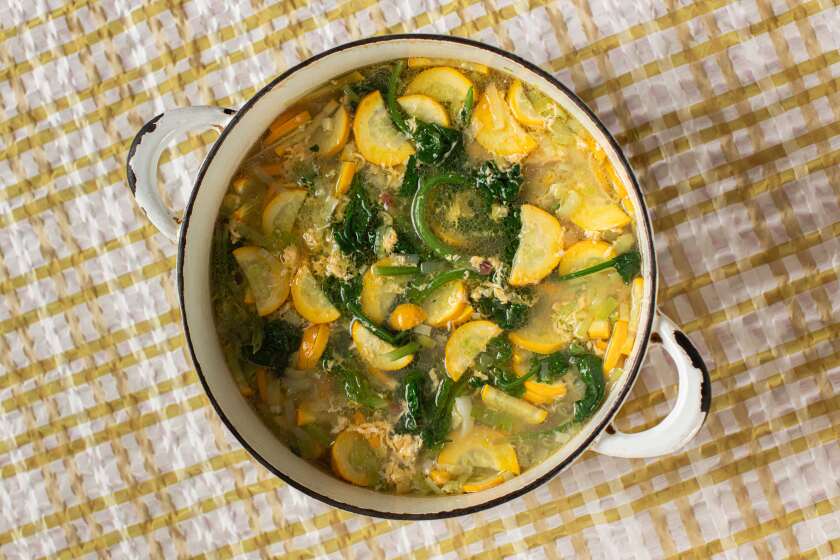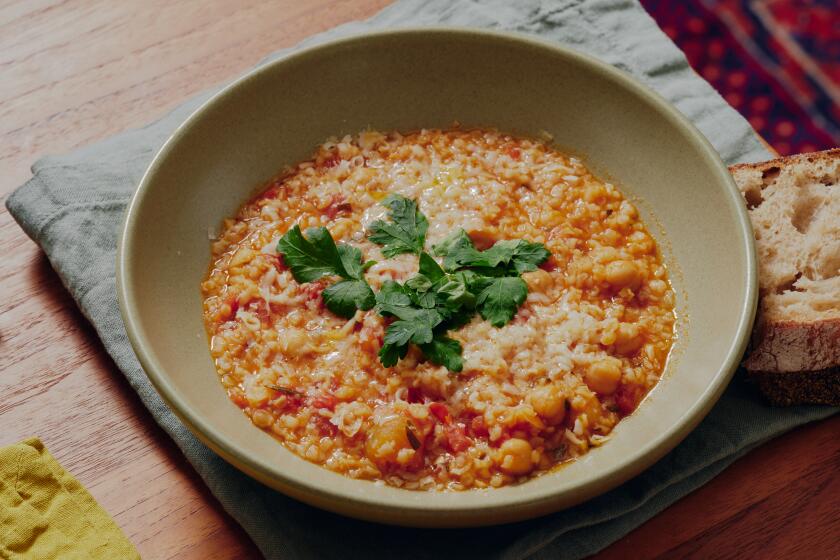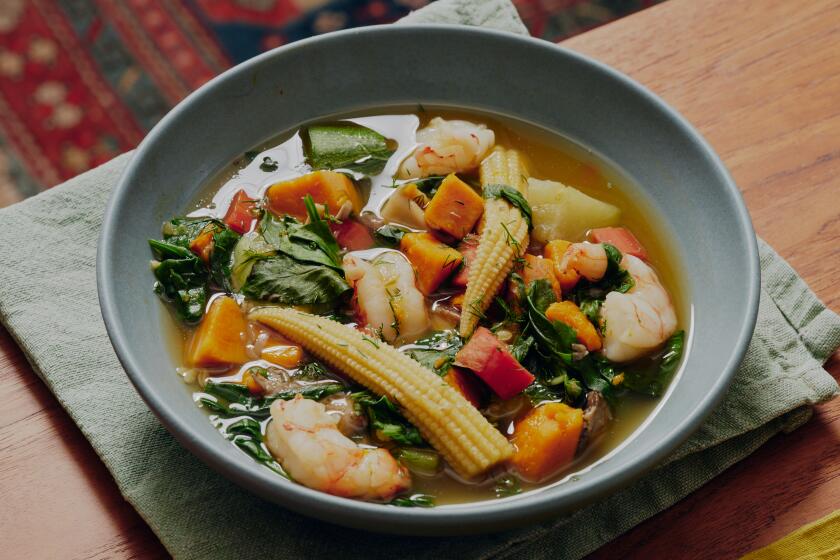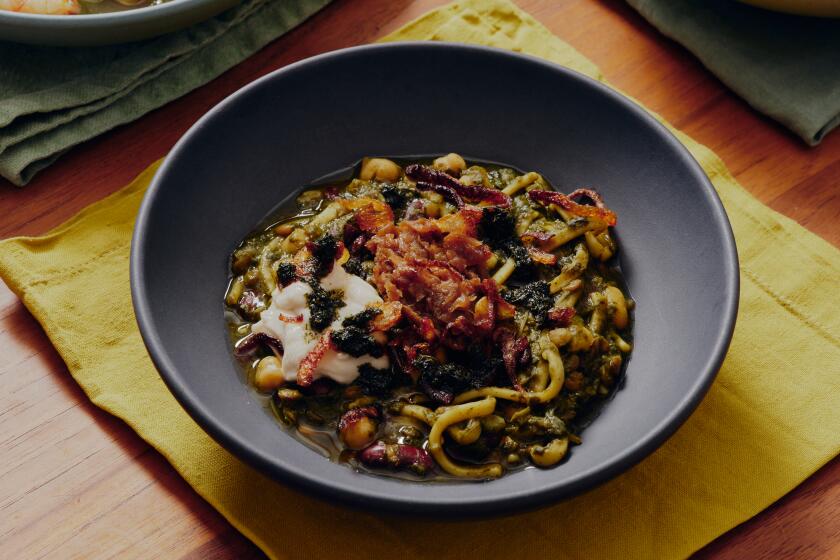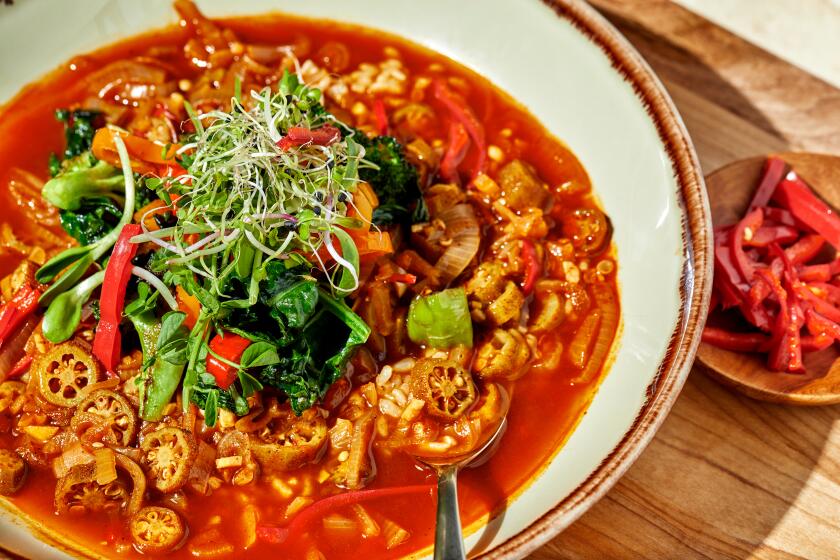New Year's Soup (Ozoni)

- Share via
Traditionally, this is the first food many families eat, even at midnight on Dec. 31. This soup includes many symbolic foods. The pink part of the steamed fish cake (kamaboko) represents the rising sun of the Japan flag for patriotism, and the white part represents purity and honesty. The pounded rice cake (mochi) symbolizes happiness, wealth and good health.
Japanese soup stock (dashi)
Wipe off the white powder on the kelp with a damp cloth. Cut 1/2-inch fringes along the edges. Place the water in a saucepan and add the kelp. Bring almost to a boil, uncovered, over medium heat. Remove the kelp. Bring the water to a boil again. Stir the flaked bonito into the pot. Let stand until the flakes settle to the bottom, about 2 to 3 minutes. Strain through a double thickness of damp cheesecloth or through a fine strainer. Makes 4 cups.
Assembly
Blanch the spinach or nappa cabbage in boiling water. Rinse it in cold water, squeeze it dry, then cut into 1 1/2-inch lengths. Poach the chicken in water until cooked through, 8 to 10 minutes. Slice it into small pieces
Soften the mushrooms in water for 10 minutes. Remove the hard stems and discard, then slice the mushrooms.
Immediately before serving, broil the rice cakes until lightly browned. Heat the soup stock and spoon into individual bowls. To each serving, add some of the spinach, chicken and mushrooms and 1 rice cake. Then top with fish cake. Garnish with lemon zest and seaweed pieces.
Get our Cooking newsletter
Get a taste of Los Angeles — and the world — with recipes and kitchen tricks from the L.A. Times’ Cooking newsletter.
You may occasionally receive promotional content from the Los Angeles Times.










